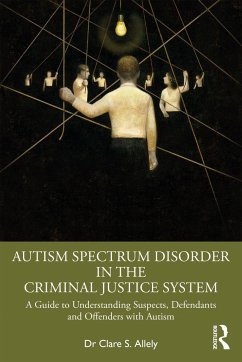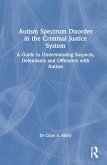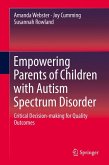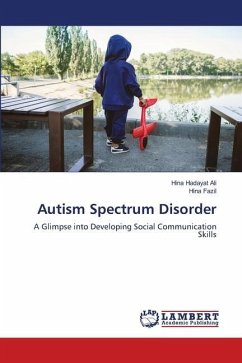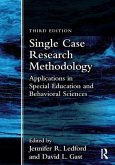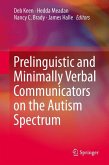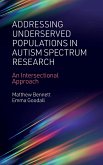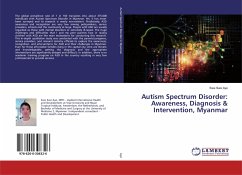This book focuses on autism spectrum disorder (ASD) in the criminal justice system. Rather than being the perpetrators of offending behaviour, individuals with ASD are more likely to be the victims of crime. However, there is nevertheless a small subset of individuals with ASD who do offend, and this book provides an in-depth understanding of how certain features of ASD may provide the context of vulnerability to engaging in a number of types of offending behaviours.
Chapters focus on arson or fire-setting; cybercrime (e.g., hacking); online sexual offending such as the viewing of indecent child imagery; offline sexual offending; violent crime; stalking; terroristic behaviour (including radicalisation and extremism); bestiality or zoophilia; and also extreme violence such as mass shooting and serial homicide. This book also outlines the ways in which a defendant with ASD may present in court and how they may exhibit behaviour which could be misinterpreted and perceived negatively, leading to an unfair trial. Lastly, it discusses the need to identify the impact that ASD can have on the capacity to form the requisite criminal intent and offers appropriate court adaptions to support individuals with ASD during court proceedings.
This book is ideal for criminal defence lawyers and practitioners in psychology, psychiatry, and social work as well as policy makers and reformers.
Chapters focus on arson or fire-setting; cybercrime (e.g., hacking); online sexual offending such as the viewing of indecent child imagery; offline sexual offending; violent crime; stalking; terroristic behaviour (including radicalisation and extremism); bestiality or zoophilia; and also extreme violence such as mass shooting and serial homicide. This book also outlines the ways in which a defendant with ASD may present in court and how they may exhibit behaviour which could be misinterpreted and perceived negatively, leading to an unfair trial. Lastly, it discusses the need to identify the impact that ASD can have on the capacity to form the requisite criminal intent and offers appropriate court adaptions to support individuals with ASD during court proceedings.
This book is ideal for criminal defence lawyers and practitioners in psychology, psychiatry, and social work as well as policy makers and reformers.
"Dr Clare Allely is a world-leading expert in the field of violent crime and its relationship to ASD. Here, she takes on the difficult and complex task of explicating how ASD and the criminal justice system(s) interact. She provides a convincing body of evidence to support the notion that, in the future, a better understanding of ASD on the part of psychiatrists, psychologists, and, not least, legal practitioners, will lead to much better-informed decisions, particularly as regards criminal responsibility in ASD, within the justice system(s)." -
Christopher Gillberg, MD, PhD
Professor of Child and Adolescent Psychiatry, senior consultant
Gillberg Neuropsychiatry Centre, Sweden
Universities of Gothenburg, Sweden, and Glasgow, Scotland
Kochi Gillberg Centre, Japan
"Allely's work is cross-disciplinary, practical and based in contemporary international research experience. It provides a ground-breaking insight into the relationship between ASD and the criminal law. It has the potential to remove stigmatising misperceptions and provide a sound expert basis for better informed decision-making." - Professor Ian Freckelton AO QC
"Allely expertly crafts an understanding of the persistent deficits that occur in ASD and the impact on those, often undiagnosed, caught up in criminal justice systems. She provides comprehensive understanding of how impairments may be exhibited or conversely masked by superficial social skills. She demolishes the suggestion that individuals with ASD lack empathy, nor are they any more likely to engage in offending behaviour compared to individuals without a diagnosis of ASD. In fact, they are more likely to be victims. Her stark warning is that the criminal justice system is frequently failing those with ASD and it is imperative that the judiciary and legal practitioners understand the existing research and use the available toolkits to reduce what is commonly a challenging and negative experience. Her call for further research to progress systemic changes to criminal responsibility ought to be heard by those at the highest level of law and policy reform." - Professor Felicity Gerry QC, international QC at Libertas Chambers, London and Crockett Chambers, Melbourne.
Christopher Gillberg, MD, PhD
Professor of Child and Adolescent Psychiatry, senior consultant
Gillberg Neuropsychiatry Centre, Sweden
Universities of Gothenburg, Sweden, and Glasgow, Scotland
Kochi Gillberg Centre, Japan
"Allely's work is cross-disciplinary, practical and based in contemporary international research experience. It provides a ground-breaking insight into the relationship between ASD and the criminal law. It has the potential to remove stigmatising misperceptions and provide a sound expert basis for better informed decision-making." - Professor Ian Freckelton AO QC
"Allely expertly crafts an understanding of the persistent deficits that occur in ASD and the impact on those, often undiagnosed, caught up in criminal justice systems. She provides comprehensive understanding of how impairments may be exhibited or conversely masked by superficial social skills. She demolishes the suggestion that individuals with ASD lack empathy, nor are they any more likely to engage in offending behaviour compared to individuals without a diagnosis of ASD. In fact, they are more likely to be victims. Her stark warning is that the criminal justice system is frequently failing those with ASD and it is imperative that the judiciary and legal practitioners understand the existing research and use the available toolkits to reduce what is commonly a challenging and negative experience. Her call for further research to progress systemic changes to criminal responsibility ought to be heard by those at the highest level of law and policy reform." - Professor Felicity Gerry QC, international QC at Libertas Chambers, London and Crockett Chambers, Melbourne.

